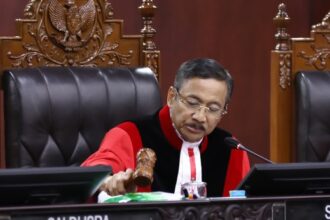As an institution that plays an important and strategic role in regulating investment flows in Indonesia, the Investment Coordinating Board (BKPM) is tasked with adjusting its policies to the dynamics of national regulations and the needs of entrepreneurs.
This year, BKPM issued BKPM Regulation No. 5/2025, which came into effect on October 2, 2025. This regulation updates the provisions on investment implementation and risk-based licensing mechanisms.
This article will briefly discuss the main substance of BKPM Regulation No. 5 of 2025, its impact on business actors and investment law enforcement, and how its implementation affects the investment system in Indonesia.
Key Provisions in BKPM Regulation No. 5 of 2025
BKPM Regulation No. 5 of 2025 was issued by the Ministry of Investment/BKPM as an implementing regulation of Government Regulation No. 28 of 2025 concerning the Implementation of Risk-Based Business Licensing. This regulation replaces BKPM Regulations No. 3, 4, and 5 of 2021, consolidating all previous provisions into a single, more comprehensive regulation. Its main focus is to create a simpler, more integrated, and transparent investment process through the Online Single Submission (OSS) system.
In general, this regulation governs several key aspects that form the foundation of investment implementation. First, it addresses the risk-based business licensing mechanism, where the licensing level is determined by the risk category of the business activity, ranging from low, medium, to high. This model aims to streamline administrative processes by reducing the number of licensing stages for low-risk sectors while ensuring stricter oversight for sectors with significant potential impacts.
Second, this regulation contains provisions regarding basic business requirements, such as spatial planning compliance confirmation (KKPR), building permits (PBG), function certificates (SLF), and environmental permits. The entire process of submission, verification, and issuance is carried out electronically through OSS, making coordination between agencies more transparent and measurable.
Third, it also regulates the obligations of business actors in reporting investment activities, including the obligation to update business data, report on investment realization, and comply with applicable regulations in the fields of labor and the environment. BKPM is given the authority to provide guidance and, if necessary, enforce administrative measures if these obligations are not fulfilled.
In addition to administrative aspects, this regulation also governs coordination between the central and regional governments in investment services. Regional governments act as technical implementers of licensing in their respective regions, but remain within the national system coordinated by BKPM. Thus, it is hoped that there will no longer be differences in interpretation between regions in the granting of business licenses.
Impact and Legal Analysis
From the business perspective, the new regulation is expected to reduce bureaucratic complexity, which has been a major complaint, as the licensing process is now fully integrated into the OSS system. With a clearer process and more predictable licensing times, businesses have a stronger legal basis for conducting their commercial activities.
However, simplifying licensing does not automatically mean there are no risks. In practice, a risk-based licensing approach requires objective and uniform assessment in every sector. If standards or supervision are inconsistent, this could actually create new imbalances between the central and regional governments, or between technical agencies. Therefore, coordination and clarity of authority between institutions is key.
Institutionally, this regulation reinforces the role of BKPM as the main investment coordinator. But at the same time, BKPM must remain cautious so as not to overlap with technical ministries that have their own sectoral regulations. Within the framework of administrative law, the principle of legality remains an important boundary, namely that every authority must have a clear legal basis so as not to give rise to the potential for ultra vires (exceeding authority).












